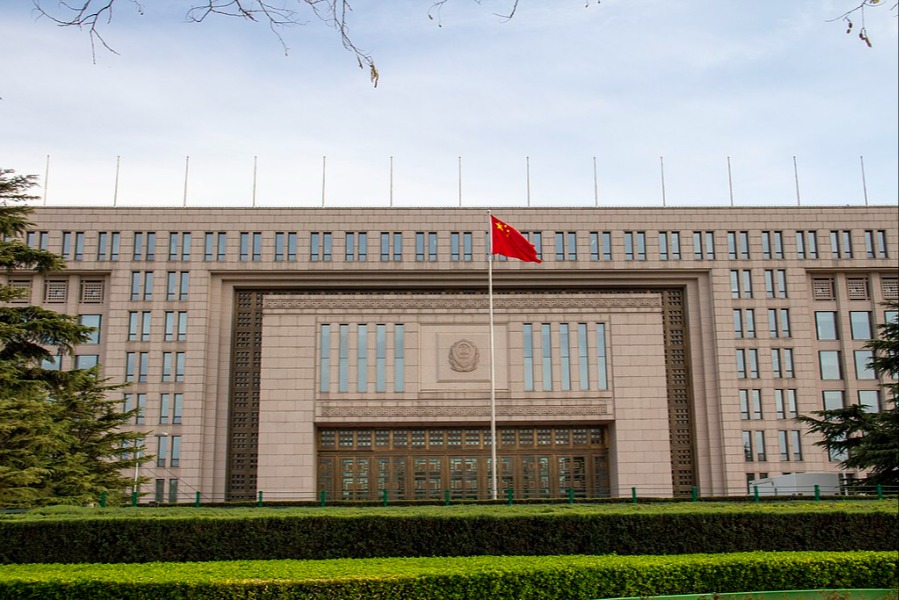State Department Affirms That Iran Deal Is Only a Political Commitment
In a letter recently released by Representative Mike Pompeo (R-KS), the State Department emphasized that the Iran deal – the Joint Comprehensive Plan of Action (JCPOA) – is not binding under international law. The letter was in response to Pompeo’s inquiry about why the JCPOA transmitted to Congress lacked signatures. The State Department said, in part:
Published by The Lawfare Institute
in Cooperation With

In a letter recently released by Representative Mike Pompeo (R-KS), the State Department emphasized that the Iran deal – the Joint Comprehensive Plan of Action (JCPOA) – is not binding under international law. The letter was in response to Pompeo’s inquiry about why the JCPOA transmitted to Congress lacked signatures. The State Department said, in part:
The Joint Comprehensive Plan of Action (JCPOA) is not a treaty or an executive agreement, and is not a signed document. The JCPOA reflects political commitments between Iran, the P5+1 (the United States, the United Kingdom, France, Germany, Russia, China) and the European Union. As you know, the United States has a long-standing practice of addressing sensitive problems in negotiations that culminate in political commitments.
The success of the JCPOA will depend not on whether it is legally binding or signed, but rather on the extensive verification measures we have put in place, as well as Iran’s understanding that we have the capacity to re-impose – and ramp up – our sanctions if Iran does not meet its commitments.
This is not a new development, though it is interesting to see the administration assert it so explicitly. Both Jack Goldsmith and John Bellinger (among others) made this clear when the deal was announced this summer. Jack noted that the deal was not a pure executive agreement but merely a political agreement, which “do[es] not create legally binding obligations, even if [it has] normative force in the political (or moral) context.” And, as John argued, while the UN Security Council Resolution (UNSCR) that implemented some of the terms of the JCPOA is binding under international law, the JCPOA itself is not. Nor does the UNSCR require the U.S. to lift domestic sanctions.
While this issue is not new, it has received some heightened scrutiny in the wake of multiple Republican presidential candidates vowing to repudiate the deal if elected. Marco Rubio, for example, said this very thing in September.
There are two related issues here. First, as noted above, as a political agreement the JCPOA is not binding under international law. The second issue is whether the commitments made in the JCPOA are binding under domestic law. An article in the Atlantic flatly asserted Rubio was wrong, equating the Iran deal to congressionally authorized executive agreements such as the International Monetary Fund, World Bank, NAFTA, and World Trade Organization.
But the JCPOA is not such an agreement, as the State Department’s letter makes clear. It is only a political commitment. (Mike Ramsey has a fuller explanation here.) Because the President already had authority under the domestic law to waive sanctions against Iran, there was no need for him to get Congress to change the law. Thus, in implementing the JCPOA by lifting sanctions, the President is essentially telling Iran he will exercise his statutorily authorized discretion to waive the sanctions. A future President could use that same authority to tell Iran he or she is re-implementing the sanctions in the interest of national security. It would be odd to say that President Obama’s use of his statutory discretion to waive sanctions somehow legally prevented a future president from using that same discretion to re-impose sanctions. The law never changed. It still gives the president discretion to apply those sanctions against Iran.
Nor did the Iran Review Act constitute congressional authorization of the Iran deal. It merely delayed the President from waiving sanctions until Congress had a chance to review it; it did not change the underlying law.
As Jack noted, the President and his legal team carefully crafted the deal to get around congressional opposition. The President knew he did not have sufficient congressional support to amend domestic law such that the JCPOA would become legally binding on future presidents. But he also calculated that even under the Iran Review Act, Congress could not muster a supermajority to stop him from using his statutory authority to waive the sanctions. So he settled for what he could get, even though, as his State Department now admits, this is only a political commitment (and therefore does not bind future presidents).
Thus, the next president will stand on solid legal ground should he or she choose to repudiate the deal. Under both international and domestic law, a future president (or this president, for that matter) is not bound to continue waiving sanctions. It is, of course, a separate question whether it is good policy for the United States to repudiate the deal.





